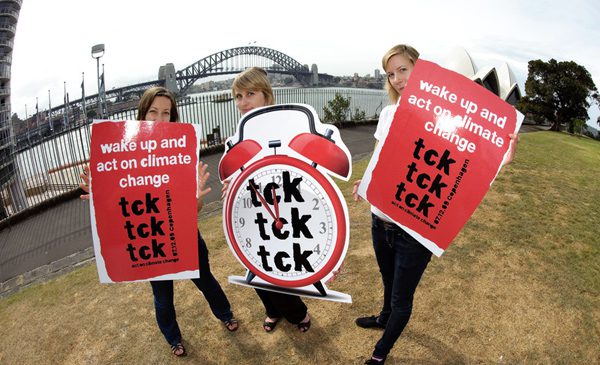A report by the Australia Institute shows that if a “fair” carbon tax was set up – one which returned tax revenues to households rather than compensated polluters – households could be better off.
Introducing a carbon tax of $25 per tonne has the potential, for instance, to raise $13 billion in new revenue and therefore could put more than $1,000 back into the pockets of the average Australian family each year.
Acting on climate change will improve our health
Every year we pay around $6 billion to treat health problems caused by the burning of fossil fuels. Lowering carbon pollution will not only reduce this cost to the tax-payer, but also guard against the potential health impacts of climate change, for instance, by mitigating the southward spread of the malaria and dengue fever transmission zones.
“Australia’s energy industry will need to evolve…whether [we] like it or not…Miners…want to avoid catastrophic climate change too. They want their kids to inherit a healthy planet, just like anyone else in the community.”
– Tony Maher, National President, Construction, Forestry, Mining and Energy Union
Get smart or go under
The world’s population is consuming the planet’s natural resources at an unprecedented rate, the equivalent of 1.5 planet Earths each year. If everyone lived like the average Australian we would require 3.8 planets to support the world’s population.
A sustainable economy is the only way to guarantee living standards in Australia will improve and poverty can be reduced in developing countries.
Will you act and ask the Australian Government to get smart on climate change before we get left behind?
There are so many reasons why acting on climate change is the smart option for the Australian economy. Not least of which is that it means a cleaner, more prosperous future for our children and for others around the world.
Yes there are costs with tackling climate change, but it’s the cost of inaction that we really can’t afford.
Getting smart on climate change
<< Part 3 | Part 4
So now you’ve got the facts, what can you do?
- Download the “Getting Smart on Climate Change” pocket booklet (PDF 1.5mb), share it with your friends by sending them the link. Or ask us to send you a copy
- Be heard: Send a letter to the Australian government asking them to get smart on climate change
- Get connected: Join our online community A Climate for Change. Connect with like-minded people and share ideas about how to tackle climate change
- Learn how communities are already being affected and how they are adapting to the impacts of climate change through the Faces of Climate Change short film series
- Become a UN Climate Tracker and influence the international climate negotiations from your computer!



